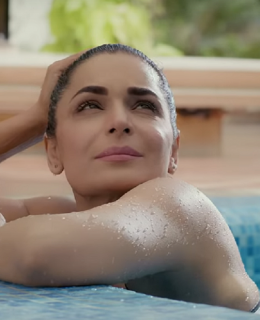In spite of the third wave of feminism, Pakistan dramas are adamant to constrain women to certain roles and stereotypes. It is significant to address them and break these shells , because women need to see themselves as able and balanced human beings whose worth doesn’t depend on social norms and their physical attributes. Accordingly, I am going t talk about female stereotypes that Pakistan dramas cling to, because they suit ratings and are easier to develop. Honestly, these characters may also recur in every other drama, because producers, directors and scriptwriters cannot handle the idea of a strong, independent and kind woman that doesn’t fit their misogynist criteria.
Here’s a list of stereotypical female characters that I’ve noticed in these shows:
The Zalim Saas
It’s compulsory for every Pakistani TV show to have one demonized mother in law with fangs and horns complete. They simply cannot show a pair of mother and daughter-in-law getting along because creating sophisticated conflict is hard work. Instead, they set women head to head as they brawl for the husband/son’s attention, which reaffirms the idea that females exist solely as accessories to males. This makes the viewing females feel insecure and helpless as their homes convert in to pits of hell.
The Selfish Worker Type
Sadly, these dramas have to depict working women and independent women as selfish, inept mothers. This stereotype is admonished for its ambition and labelled as inherently cold or greedy. Please keep in mind that the same professional ambition is considered ideal for men, because it fits with patriarchal gender roles. These dramas cannot stand the idea of a well-rounded woman who can have it all. Why is it that the male spouse’s role as a father is not given the same weight as the female’s? Importantly, these serials give the green light to certain ‘motherly’ professions e.g. teaching at a school. While they may even show single women in offices, once the characters get engaged it’s requisite for them to give up their respective freedoms.
The Sacrificial Lamb
This stereotype is the supposedly “ideal” type of a woman. She exists only to make others happy at the cost of her own happiness. Apparently, we also have to honor these ‘martyrs’ or , in truth, unhappy, exploited and stepped-on human beings. Before you start to defend this lamb, please digest that an unhappy person cannot give happiness to other in the real world.
The Flighty Girl in Jeans
This one just makes me cackle. These dramas will let you know that a woman’s inherently evil by dressing them up in jeans. Yes! The girl clad in shalwar kamiz is apparently the parsa, while the one in western clothes is Satan’s lost spawn. This is extremely problematic for several reasons. Firstly, it establishes that it’s okay to judge people’s hearts by their clothes. Secondly, it allows you to automatically misbehave towards or form an ill opinion of a blue jeaned HUMAN BEING. Thirdly, it lets people dressed in eastern clothes assume unjustly that they’ve become good people just by putting on shalwar kamiz. And finally, men harass these ‘western’ women because they assume wrongly about their moral characters.
The Socialite
Another horrible message that these shows send you is that the wives of rich husbands do not need to become contributing, aware citizens. Instead, it’s okay for them to be scheming, trophy wives, aspire for superficial things and take their frustration out on maids and drivers.
The Base Bahu
It’s again reiterated that women are the worst enemies of other women as the supposed bestie gets jealous and seduces the protagonist’s husband. Creating an environment of mistrust, these shows strip husbands of all responsibilities while showing them helpless to the mistress’ charms.
The Snake Bestie
It’s again reiterated that women are the worst enemies of other women as the supposed bestie gets jealous and seduces the protagonist’s husband. Creating an environment of mistrust, these shows strip husbands of all responsibilities while showing them helpless to the mistress’ charms.
The Depressed and Dependent Dadi
After becoming sixty years old, the dadi is stripped of any right to self-care and actualization. Now, her sole duty is to her children, grandchildren and God. Sadly, this kind of portrayal destroys all colours from the life of an elderly woman just because her biological clock has shut down. It also assumes that women are worthy only if they can reproduce.
Nimra Ishfaq
Life’s a Catch-22.


